
发布时间:2023-07-24
导语:
卢塞恩(Lucerne)是一座迷人的瑞士中型城市,它拥有不凡的历史,以及好几个欢快的节日。2023年8月8日-9月10日,卢塞恩夏季音乐节将如期举办,让我们今天来了解一下。
卢塞恩的历史
卢塞恩的起源可以追溯到公元840年左右。文献中提到了Luciaria一词,它可能指“光明之地”——直到今天,这个名字仍具有重要意义。在中世纪早期,城镇里的地标建筑主要有圣莱奥德伽尔(Saint Leodegar)的本笃会修道院,而圣莱奥德伽尔至今仍是该市的主保圣人。

卢塞恩长期以来一直是一座地区市集城镇,每周二的市集延续至今,数百年来为该市的腹地供应着物资。在13世纪,横穿哥达山(Gotthard)的南北贸易将卢塞恩变成了一个大型商业中心。穿越这道阿尔卑斯山口的贸易主要连接着德国和意大利,并一直繁荣到17世纪。
除了横跨阿尔卑斯山的贸易,卢塞恩及其边远地区的主要收入来源是雇佣兵,即被派往法国、西班牙、萨伏依公国或当时的其他强国作战的瑞士年轻人。在大约1400年至1800年间,约有5万人离开卢塞恩到国外服役——而在那一时期的大部分时间里,卢塞恩市只有约4,000人口。
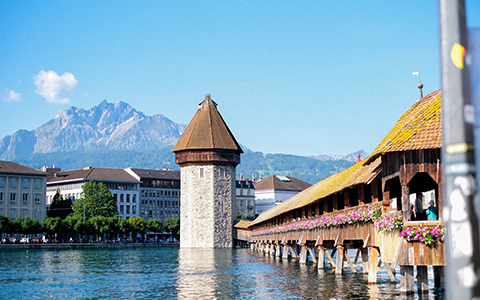
瑞士联邦于1848年形成,当时作为欧洲第一个民主国家的现代民族国家由此成立。1859年,现代化的铁路通到了卢塞恩,城市开始向河的南岸扩张。从1830年起,卢塞恩有了新的产业——旅游业。迷人的卢塞恩湖、交通便利的山脉和一些最早的山区铁路使它成为当时少数有能力旅游的人最喜爱的目的地。卢塞恩的许多大酒店和景点都是在19世纪末打造的。
到了20世纪,卢塞恩发展成为瑞士中部地区一个充满活力的中心,并于2000年成为大学城。由建筑师让·努维尔(Jean Nouvel)设计的世界闻名的音乐厅“KKL”也于2000年落成,这座音乐厅形似船型,其音响效果和建筑风格同样闻名遐迩,为这座城市增添了新的文化色彩。在文化领域,卢塞恩因举办瑞士第二大(仅次于巴塞尔)的热闹非凡的嘉年华会和卢塞恩古典音乐节而闻名。

卢塞恩夏季音乐节
卢塞恩夏季音乐节创办于1938年,是古典音乐界最重要的国际音乐节之一。为期四周的音乐会精彩纷呈,从古典乐到爵士乐都有,往往还带有拉美音乐元素。
从每年8月中旬到9月中旬,音乐节将举办约100场种类繁多的音乐会和相关演出活动。每个夏季音乐节都有一个贯穿整个节目的主题。音乐节形式多样,包括交响音乐会、室内音乐会、独奏音乐会、首演、深夜演出等。
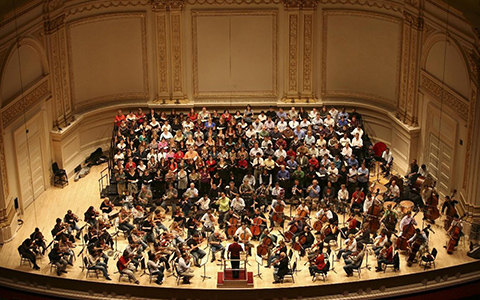
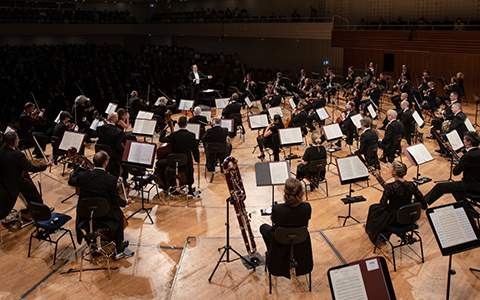
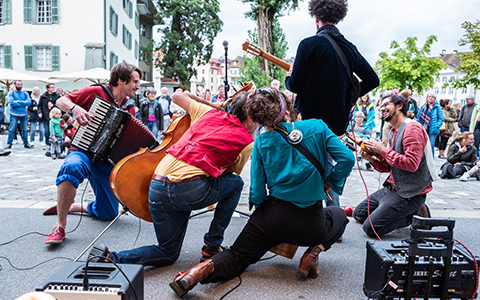
夏季音乐节的前后还有两场短期音乐节,分别在春季和秋季举办:由卢塞恩音乐节管弦乐团演出的春季驻场音乐会和11月举行的“卢塞恩音乐节向前冲”(Lucerne Festival Forward)。此外,还有钢琴家伊戈尔·列维特(Igor Levit)策划组织的为期三天的钢琴节。
2023年夏季音乐节将于2023年8月8日至9月10日举办,首先以一支古巴著名乐队的表演拉开帷幕,随后将由斯堪的纳维亚艺术家和以色列一流管弦乐队带来各种欧洲经典音乐。本届夏季音乐节的一个特别亮点是8月25日中国钢琴家王羽佳的演出。虽然大多数音乐会都需要门票,但在卢塞恩历史悠久的市中心和各个中央广场上也有多场露天音乐会,而且都是免费的。


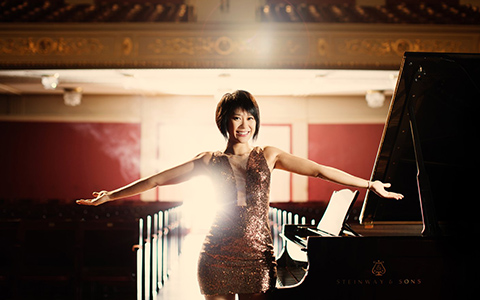
如果您想了解更多关于卢塞恩夏季音乐节的信息,请联系我们。我们很高兴回答您的问题,并协助安排您的行程,前往这个美丽而又年代久远的地方。
联系方式
电话:400-006-7726
邮箱:info@lasoleille.com
Original English Text
Summer in Swiss Cities!
Lucerne and its summer festival 8 August – 10 September 2023
Lucerne is a fascinating Swiss mid-size city with an amazing history – and a few delightful festivals!
A bit of history:
Lucerne’s roots go back to the year around 840. The name Luciaria is mentioned in documents, which may mean 'place of light' – still significant until today! The early mediaeval town consisted mainly of the Benedictine abbey of Saint Leodegar, who is still today the town's patron saint.
Lucerne was long a regional market town, and the weekly market on Tuesdays (still held today!) supplied the town's backland for centuries. In the 13th century north-south trade across the Gotthard turned Lucerne into a major commercial centre. The trade across this Alpine pass mainly connected Germany and Italy, and boomed right up until the 17th century.
Apart from trans-Alpine trade, a major source of income in Lucerne and its backcountry were mercenaries, young Swiss men who were sent to fight for France, Spain, the Duchy of Savoy or other powers of the day. Between ca. 1400 and 1800 around 50,000 men had left the Lucerne area to serve abroad – and the city of Lucerne only had a population of around 4000 for most of that period!
Switzerland’s confederation was created in 1848, when the modern nation state was founded as Europe’s first democracy. In 1859 modernity reached Lucerne in the shape of the railway, and the town started expanding in earnest on the southern shore of the river. From 1830 onwards Lucerne had a new industry – tourism. The amazing Lucerne lake, the easily accessible mountains and some of the earliest mountain railways made it a favourite destination for the still very exclusive group of people who could afford to travel for pleasure at that time. Many of the grand hotels and attractions of Lucerne were built towards the end of the 19th century.
In the 20th century, Lucerne developed into a vibrant centre for the region of Central Switzerland, becoming a university city in 2000. The world famous concert hall “KKL” by architect Jean Nouvel was also opened in 2000, giving the town a new cultural dimension. In the realm of culture Lucerne is famous for hosting the second largest (after Basel) and loudest Swiss carnival and the Lucerne Festival for classical music.
Founded in 1938 the Lucerne Summer Festival is one of the leading international festivals in the world of classical music. It is taking place throughout the city of Lucerne. About four weeks of spectacular concerts from classic to jazz, often with Latin American music influence.
From mid-August to mid-September the festival offers a widely varied range of approximately 100 concerts and related events. Each Summer Festival features a guiding theme that runs through the programming. The Festival presents a diverse array of formats, including symphony concerts, chamber music, recitals, debuts, late night events, and much more. Flanking the Summer Festival are short festivals, one each in spring and fall: a spring residency featuring the Lucerne Festival Orchestra and “Lucerne Festival Forward,” which takes place in November. On top there will be a three-day Piano Festival curated by the pianist Igor Levit. Lucerne’s unique concert hall “KKL”, shaped like a ship and designed by Jean Nouvel is equally renowned for its acoustics and architecture.
The 2023 Summer Festival will start on 8 August 2023 with a renowned band from Cuba and continues with a mix of European classic music with Scandinavian artists as well as a leading orchestra from Israel. A very special highlight during the Summer Festival 2023 is the performance of the Chinese pianist Yuja Wang (王羽佳) on 25 August 2023. While most concerts require tickets there are also various open air concerts in Lucerne’s historic inner city, on various central squares – and free of charge.
If you are curious to learn more, please contact us. We are delighted to answer your questions and help you preparing your trip to this equally beautiful and historic place.
本文转载自瑞士雷梭勒家族办公室,如有侵权,敬请告知删除。
Sooswiss为您提供
瑞士方向私人管家式的定制服务:
1)家族传承 2)财富管理 3)投资咨询
4)企业服务 5)居留计划 6)国际教育
更多资讯请登录网站 www.sooswiss.com
